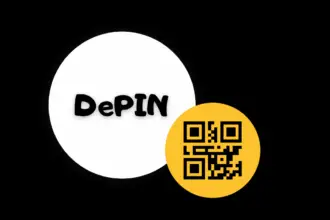
Handshake (HNS) is a decentralized, open-source protocol that aims to provide a more secure and decentralized alternative to traditional domain name systems (DNS). Instead of relying on centralized authorities to manage and control the registration and resolution of domain names, Handshake allows anyone to register and manage their own domain names on the Handshake blockchain.
Handshake domains, also known as HNS domains, are domain names that are registered and managed on the Handshake blockchain. These domains are decentralized, meaning that they are not controlled by any central authority, and they are secured by the same blockchain technology that powers cryptocurrencies like Bitcoin.
To register a Handshake domain, users need to acquire HNS, the native token of the Handshake protocol. HNS can be acquired through various cryptocurrency exchanges or from other users on the Handshake network. Once a user has acquired HNS, they can use it to bid on and register their desired domain name.
The process of registering a Handshake domain is similar to that of traditional domain name registration but with some key differences. First, instead of dealing with a centralized authority like ICANN, users are interacting directly with the Handshake blockchain. Second, the process of registering a domain name on Handshake is decentralized and open to anyone, rather than being restricted to a select group of registrars.
The process of registering a Handshake domain starts with the user submitting a bid for their desired domain name. The bid is broadcast to the Handshake network and is processed by the blockchain’s consensus mechanism. If the bid is successful, the user becomes the owner of the domain name and can start using it to point to their website or other content.
Once a Handshake domain is registered, the owner can use it to point to their website or other content by creating a resource record on the blockchain. A resource record is a piece of information that is stored on the blockchain and can be used to associate a domain name with a specific IP address or other information.
For example, if a user owns the Handshake domain “example.com”, they can create a resource record that associates the domain with their website’s IP address. This allows anyone who types “example.com” into their web browser to be directed to the user’s website.
Handshake also allows for multiple types of resource records. For example, it is also possible to create a resource record that allows for email routing and encryption, enabling full decentralized email infrastructure.
One of the main benefits of Handshake domains is that they are more secure than traditional domain names. Because Handshake domains are secured by the blockchain, they are resistant to tampering and hacking. Additionally, the decentralized nature of Handshake means that there is no central point of failure, making it much more difficult for attackers to take down the entire system.
Another benefit of Handshake domains is that they are more private than traditional domain names. Because Handshake domains are not controlled by any centralized authority, there is no central database of domain name registrations. This means that there is no central point of failure for attackers to target, and it also makes it much more difficult for governments or other organizations to censor or control the Handshake network.
In conclusion, Handshake (HNS) domains are decentralized, open-source domain names that are registered and managed on the Handshake blockchain. These domains offer a more secure and decentralized alternative to traditional domain name systems, allowing anyone to register and manage their own domain names without relying on centralized authorities. Additionally, Handshake domains are more private and secure than traditional domain names, making them an attractive option for those who value privacy and security on the internet.










